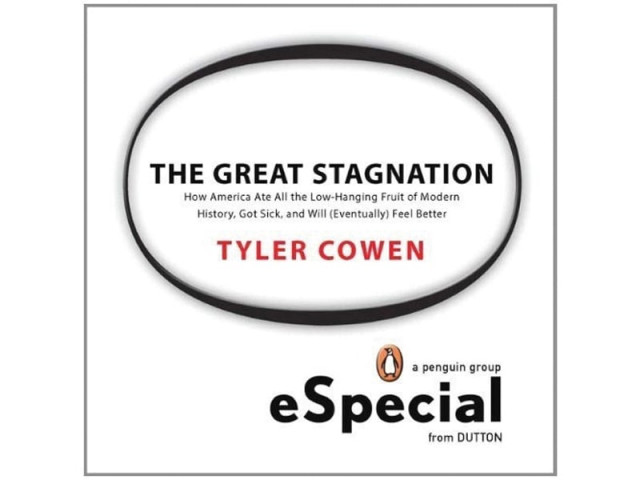Book review: The Great Stagnation - a crisis of innovation
This book is going to change the way we approach and analyse our economic problems.

Book review: The Great Stagnation - a crisis of innovation
The main thesis of the book is that advanced economies, particularly the American economy, have been facing low rates of growth because they have not experienced any scientific or technological paradigm shifts (to use Thomas Kuhn’s term), for a long time.
Refreshingly, the book has no ideological leanings. In fact, Cowen has criticised the approach of both Republicans and Democrats in the US on political and economic issues.
He even questions the remedies being suggested for financial revival by economists like Paul Krugman on the proposition that higher government spending is not going to produce the insane growth rates characteristic of the twentieth century.
He cites China and India as exceptions who are reaping the advantages of ‘low hanging fruit’ just like Europe and America did in the last couple of centuries by educating more people and effectively utilising the physical resources of the country.
Cowen has presented his thesis without any theoretical framework or ideological affiliations. However, the idea he is propounding is quite similar to the Marxist theory describing the relationship between ‘means of production’ and ‘relations of production’.
It essentially posits that the political system of any era is largely dependent on the economic system. Cowen extends this hypothesis by suggesting that economic systems are also dependent upon the technologies prevalent in that era.
While Cowen recognises internet as the latest revolutionary technology, he completely ignores the opportunities the internet provides for small to medium level entrepreneurs.
He also overlooks the millions of jobs created by the computer industry overall. Also, the internet has been around only for two decades. We can safely assume that its true potential is yet to be seen. One thing is certain though — the internet is decentralising everything quite rapidly.
The way forward, according to Cowen, is not through some ‘structural adjustments’ – mantra of contemporary socio-economic pundits. Cowen suggests raising the social status of scientists so that more and more young people can be attracted to scientific pursuits to build the future of the world.
This suggestion has invited much criticism, with people saying that better pays will not be enough to boost scientific growth. However, in my opinion, Cowen is trying to recommend that we dissociate money from status. Teach children how to think rationally and create a quest in them for knowledge in them, not just lust for more and more material benefits. This is quite in line with the suggestions of celebrity scientists like Stephen Hawking, Michio Kaku, and Richard Dawkins.
In short, this book definitely has an impact on the reader. It is going to change the way we approach and analyse our economic problems.
Published in The Express Tribune, Sunday Magazine, July 10th, 2011.



















COMMENTS
Comments are moderated and generally will be posted if they are on-topic and not abusive.
For more information, please see our Comments FAQ